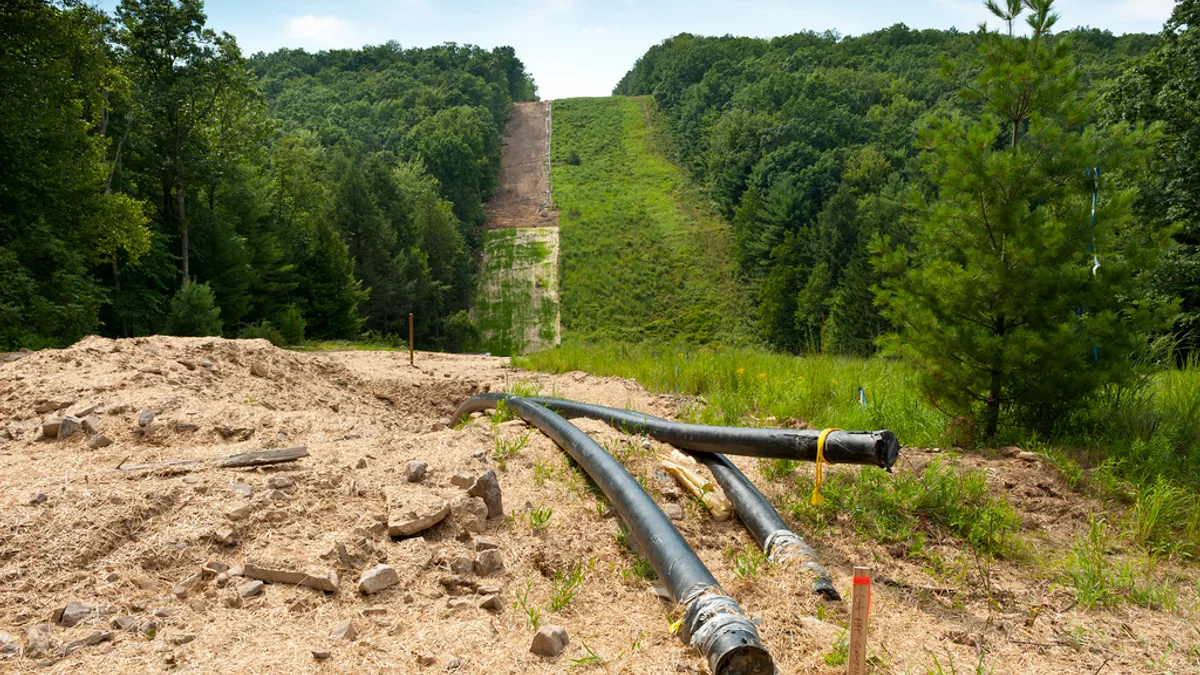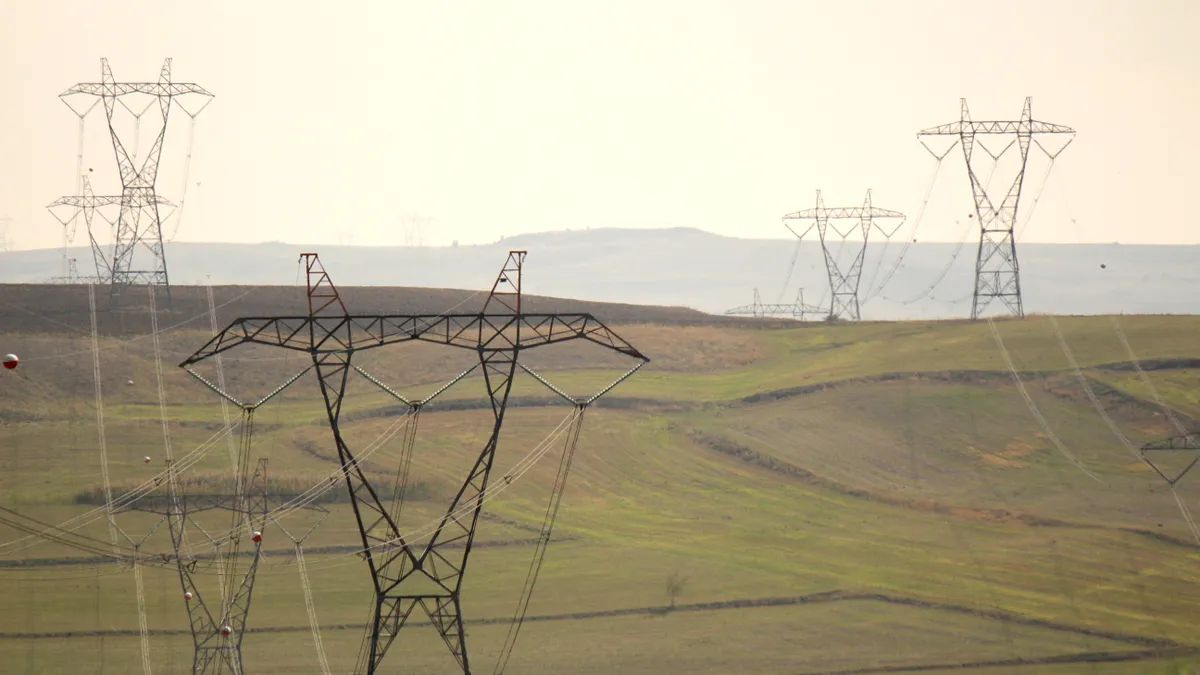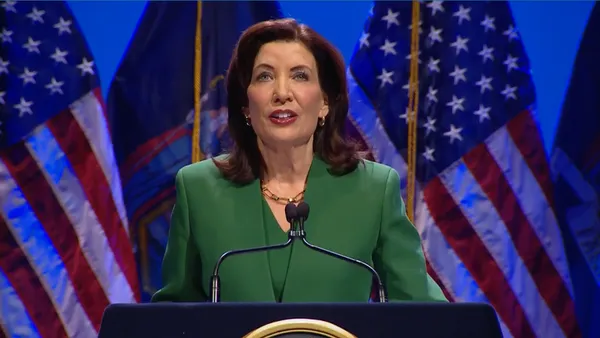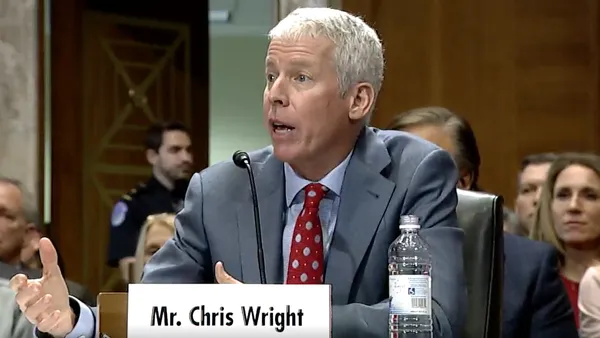Dive Brief:
- The Federal Energy Regulatory Commission last week approved Energy Transfer Partners' 713-mile Rover Pipeline, which aims to move gas supplies from Appalachian basins to several regional U.S. markets and a proposed interconnection with Vector Pipeline in Michigan.
- The commission approved the order Feb 3., the final day of Commissioner Norman Bay's tenure before his departure leaves FERC without a quorum, and consequently unable to approve major projects.
- Energy Transfer said in a statement that it expects to meet the project's targeted in-service goals of July 2017 for Phase I and November 2017 for Phase II.
-
Dive Insight:
FERC last week issued a series of decisions, looking to get as much done as possible before the commission's understaffed slate of commissioners leaves it unable to make major decisions. Among the orders, ETP got the go-ahead for its Rover Pipeline.
The project will transport up to 3.25 billion cubic feet /day of natural gas to markets in the Midwest, Northeast, East Coast, Gulf Coast and Canada. The line will also feature direct deliveries to Ohio, West Virginia, Michigan, and into the Dawn Hub in Ontario, Canada.
Much of the gas flowing to Canada will be redirected back to the United States, ETP noted, as Dawn "has a broader network of distribution points back into the U.S."
The pipeline runs through parts of Pennsylvania, West Virginia, Ohio, and Michigan. ETP said on its web site that the project also calls for the installation of four new mainline compressor stations and a half dozen supply compressor stations, associated meter stations, and other above ground ancillary facilities.
According to ETP, domestic gas production is forecast to increase by 44% by 2040, but the pipeline is needed because "production is not expected to come from traditional supply areas."
Gas supplies from the Gulf of Mexico, a historic supply area, are down 46% over the past five years, ETP said, which has left existing pipes underutilized. "The new gas that will replace the historic supplies is mostly going to originate from the Marcellus and Utica formations, where pipelines—such as Rover—will carry this abundant new supply to market," according to the project site.
Among FERC's recent activity in the past weeks, the agency authorized Spectra Energy to move ahead with its Atlantic Bridge pipeline project, which aims to boost deliveries in New England and Atlantic Canada in time for next winter. The commission also approved Dynegy's $3.3 billion acquisition of almost 9,000 MW of generation owned by Engie.














